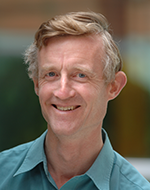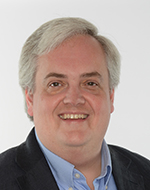| Date: |
19 Mar 2018 |
Venue: |
Downing College
Regent Street
Cambridge
Cambridgeshire
CB2 1DQ
|
| Time: |
16:00
-
18:30
|
| Type: |
Seminar |
Fee: |
Free |
In September 2014, the Department for Education launched an entirely new national curriculum for Computing, replacing Information and Communication Technology. Uniquely in the world, computer science is now taught to every child, at every level from primary onwards. The change gave schools a huge challenge, amounting to the introduction of an entirely new subject at school, and one in which few teachers have enough subject knowledge, let alone well-tested pedagogy.
One powerful way to support teachers is to provide them with a corpus of high-quality quizzes, to use in formative assessment. Assessment items are usually written by experts, and filtered by field trials. This is expensive, and yields only small repositories of items, often subject to restrictions regarding availability. Quantum starts from the opposite end of the spectrum: could we crowd-source Computing questions, and filter them by analysing the results of millions of question attempts on thousands of questions taken by hundreds of thousands of students? Then we could build a large corpus, available for free, to everyone, forever.
Project Quantum is both a research project (can we really get lots of high-quality questions this way?) and a delivery project (can we make the lives of classroom computing teachers better, soon?). The two are symbiotic: the research drives quality metrics, which teachers can use when selecting items; the data from live usage at scale drives the research.
If Quantum is successful, it will be useful this year and next year; in other countries as well as the UK; at every level from primary to A level; and in maths, science, English and history as well as computing. Scalable interventions like this are hard to come by.
At this Cambridge Assessment Network seminar, Professor Simon Peyton Jones FRS and Miles Berry will explain the thinking behind Project Quantum, and describe how it is all working out in practice.
About the speakers
 Simon Peyton Jones, FRS, graduated from Trinity College Cambridge in 1980. After two years in industry, he spent seven years as a lecturer at University College London, and nine years as a professor at Glasgow University, before moving to Microsoft Research (Cambridge) in 1998.
Simon Peyton Jones, FRS, graduated from Trinity College Cambridge in 1980. After two years in industry, he spent seven years as a lecturer at University College London, and nine years as a professor at Glasgow University, before moving to Microsoft Research (Cambridge) in 1998.
Simon’s main research interest is in functional programming languages, their implementation, and their application. He was a key contributor to the design of the now-standard functional language Haskell, and is the lead designer of the widely-used Glasgow Haskell Compiler (GHC). He has written two textbooks about the implementation of functional languages. He is particularly motivated by direct application of principled theory to practical language design and implementation — that is one reason he loves functional programming so much.
Simon is chair of Computing at School, the grass-roots organisation that was at the epicentre of the 2014 reform of the English computing curriculum. Simon has direct and practical understanding of education through his role as a governor at Chesterton Community College, Cambridge.
 Miles Berry is principal lecturer in Computing Education at the University of Roehampton. Prior to joining Roehampton, he spent 18 years in four schools, much of the time as an ICT coordinator and most recently as a head teacher. His research interests include the pedagogies of computer science education and informal learning. He is a former chair of Naace. He is a board member of Computing At School, the BCS Academy of Computing and the Computer Science Teachers' Association, and is a member of the Raspberry Pi Foundation. He is a fellow of the BCS, RSA and HEA.
Miles Berry is principal lecturer in Computing Education at the University of Roehampton. Prior to joining Roehampton, he spent 18 years in four schools, much of the time as an ICT coordinator and most recently as a head teacher. His research interests include the pedagogies of computer science education and informal learning. He is a former chair of Naace. He is a board member of Computing At School, the BCS Academy of Computing and the Computer Science Teachers' Association, and is a member of the Raspberry Pi Foundation. He is a fellow of the BCS, RSA and HEA.
Over the years Miles has contributed to a number of computing related projects including: CAS's computer science curriculum, the national curriculum computing programmes of study, the CAS/Naace guide to the computing curriculum for primary teachers, training of CAS Master Teachers, the BETT and ERA Award winning Rising Stars Switched on Computing, Barefoot Computing, Code Club Pro's training materials, QuickStart Computing and resources for the BBC and Microsoft. Current projects include Hello World, a free magazine for computing teachers, and Project Quantum - a national item bank of computing questions.
Miles gives regular keynotes and CPD workshops on computing and education technology in the UK and abroad and has worked on a number of international consultancy projects involving curriculum development and CPD.
About Cambridge Assessment Network seminars
Through inviting authoritative voices in education to share their expertise, our seminars aim to inform and stimulate debate on current issues in assessment. As well boosting your CPD, these free events are an opportunity to network and share insights with other professionals from the wider education community.